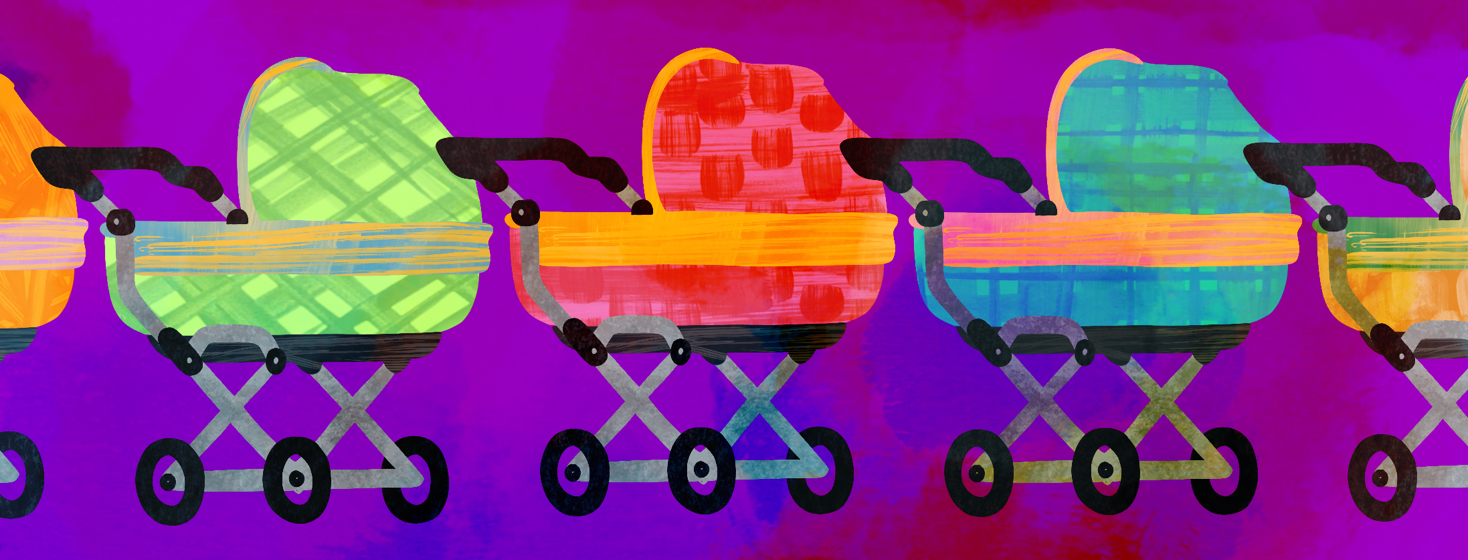PPD Recurrence: Planning for Second Baby Blues
It's completely understandable to feel concerned about the idea of navigating postpartum depression (PPD), especially if you've experienced it before and are considering having another child. The journey can be challenging, but with awareness, support, and proactive steps, it's possible to find a path toward managing your mental health and getting back to enjoying life as a parent of multiple children.
Our Community Health Leaders have shared their insights, advice, and encouragement for those worried about being able to manage a potential recurrence of PPD while welcoming another child. Read on for some research and strategies that may help.
Am I at risk of developing PPD again?
Studies have shown that people who experience postpartum depression and postpartum affective disorder after their first baby have an increased risk of experiencing PPD and postpartum AD with a second child, especially if during their first postpartum period they experienced things like:1
- Postpartum depression or postpartum mood disorders
- A history of depression, anxiety, or bipolar disorder
- A family history of mental health disorders, including PPD
- Problems in their relationships with spouses or partners
More risk factors for PPD recurrence
Your risk of developing PPD after a second birth also can increase if the things you've faced before, during, or after the second birth include:1
- Multiple births (twins, triplets, etc.)
- Stressful events like pregnancy complications or loss
- Issues with finances, relationships, or support systems
- The pregnancy being unplanned or unwanted
- Difficulty breastfeeding
If you experienced PPD symptoms during your first postpartum period, it's a good idea to talk to a doctor, therapist, midwife, or doula about your concerns. Proactively speaking to your care team and developing a plan for managing a potential recurrence can make all the difference.
Shay Smith: My first 3 babies were all unexpected blessings, so when I told my partner I wanted to try for 1 more to complete our family, we never expected 1 to become 2. I was scared and excited at the same time. My PPD set in pretty quickly this go-round...
Leveraging what you know to prepare for what you don't
There is research to suggest that a family history of PPD or mental health disorders can increase your risk of developing PPD. Knowing your family history can help you prepare to manage your own mental health when you're pregnant or in the postpartum period of your second child.2
Natasha Lettner: For me, therapy became a turning point. Except for my brother, who was diagnosed because of his criminal record, everyone else in my family has failed to address mental health concerns actively. When I decided to get therapy, it wasn’t solely to treat my PPD. My goal was to interrupt the pattern.
Work with your care team to come up with a plan
If you know you are at risk of developing PPD with your next birth, it's best to work with your care team on a plan as early as possible in your pregnancy so that once your next baby is born, you feel prepared and supported.
Amanda Osowski: If you take mental health medication before pregnancy, talk with your provider about continuing the medication (and any helpful dosage changes) as early in your pregnancy as you can. If you are at a higher risk for PPD, speak with your doctor and delivery team before you have your baby. There are now medications specifically for PPD that can be given shortly after delivery to help mitigate the severity of symptoms.
Natasha Lettner: The first thing I did to prevent postpartum depression was create a postpartum plan. My therapist is on speed dial because I don’t give myself the option of not having professional help if I need it. I have a strategy for self-care every day and scheduled time off to recharge. Having a little control makes me feel prepared.
Recognizing what this is and how to get help
Oriana Cardin: I didn't realize I might be suffering from PPD until my second child was born. That was 2 years after the first. I began to have much more intense feelings during the second pregnancy, which prompted me to begin talking about it. I didn't get help until about 9 months after that.
Natasha Lettner: The first step in prevention is recognizing you're at risk. My persistent worry that I wouldn't be a good mother – a worry rooted in my own mother's struggles with addiction to drugs and alcohol – was a significant factor behind my postpartum depression and has been central to what I’ve done to prepare for baby number 2.
Shay Smith: Remember that all of your thoughts/feelings/physical concerns are valid, and your doctor should treat them as such. If the doctor doesn’t meet your criteria, you find another candidate. There are plenty of doctors out there, so while it might take you a minute to find the best match, know that it is possible.
